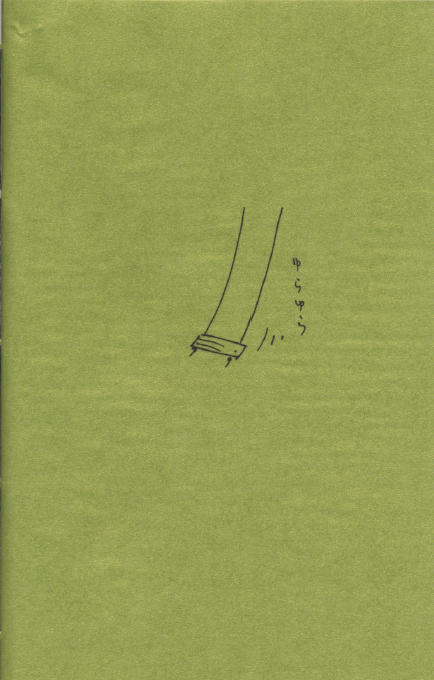In honour of community, collaboration and spirit, six Vancouver writers took on traditional Japanese poetic forms such as haiku, hokku and renga, and created their own modern hybrids. The final product for the 2008 Powell Street Festival was a limited run of 120 slender, hand-stitched, illustrated chapbooks with ribbon bookmarks attached, complete with a dedication to the late Roy Kiyooka.
The "pH6" in the title implies a sense of balance to the book’s unpredictable poetic pairings – inspiration and creativity, ritual and invention, life and death. The voices within make up an echo chamber across time and experience, the shadow of tradition always traceable.
American poet and translator Robert Hass says of the form: "If the first level of a haiku is its location in nature, its second is almost always some implicit reflection on nature." The quality, for example, of the deep melancholy in autumn can be effectively translated as a kind of "mood." So, as haiku hybrids from the west, like the ones included here, reflect a distant kin in the east, a conversation is struck.
Hiromi Goto’s "How cool the ladies/white knees in summer dresses/I prickle with sweat" stays truest to the form, as does Lydia Kwa’s "in my autumn years/a lotus breaks the surface/startles my mind’s throat." Roy Miki is the most mischievous, at play with language, humour and indulgence, without losing sight of his inspiration: "What happens when he/got the H out of Utah-//Uta! Uta! cries the ah so/spry spirit of Kiyooka-san." However, it’s the ghost-like call and response in the poems of Mark Nakada, Ruth Ozeki and Brandy Lien Worrall that amplify the reverberations of past voices.
All three poets address cultural, political and familial binds. Nakada’s hybrid "renku" weaves lines of Kiyooka’s (from a book based on interviews with his mother) through his own, paying homage and emphasizing tragedy and loss. Ruth Ozeki uses the right-hand margin to respond to her grandfather Shosei Yokoyama’s poems from 1941, shored against the left-hand margin. Here grandfather’s haunting call: "I’ve been taken,/but my old wife escaped -/day fifteen//" and granddaughter’s response: "and counting as she sold your photographs,/souvenirs to soldiers, post cards of paradise//."
Most ambitious of all, Brandy Liên Worrall blends French, Vietnamese and Japanese "rules of rhythm and spirit" to capture the ghost of a family in lines of poetry. In her preface to the poems, she guides the reader through six Vietnamese tones, indicating how a slight alteration in sound creates a new meaning. These subtle shifts enhance the power of the relationship between mother and daughter, past and future: "Tongues and tones, found in signs/wrap round dreams of black lines. Girl finds/Mom with closed eyes. She spins//."
Some of the delicacy of the traditional form is lost here in all this play and hybridity. For example, kake-kotoba, or pivot words, expose layers of meaning in a poem so slight. This turn at the end of a line, crucial to the strength of haiku, is often absent here, limiting each poem’s possibilities.
At times, the poems collected here are missing the stillness earned through wordlessness. However, this musical arrangement of past, present and future voices is a celebration, and no ceremony takes place in silence.
To purchase the book from the Powell Street Festival Society contact Kristen Lambertson at [email protected].
Sheryda Warrener’s poetry has been published in Event, The Fiddlehead and Grain. She lives in Vancouver, where she recently completed an MFA in Creative Writing at UBC. This review was first published in Ricepaper Magazine.




